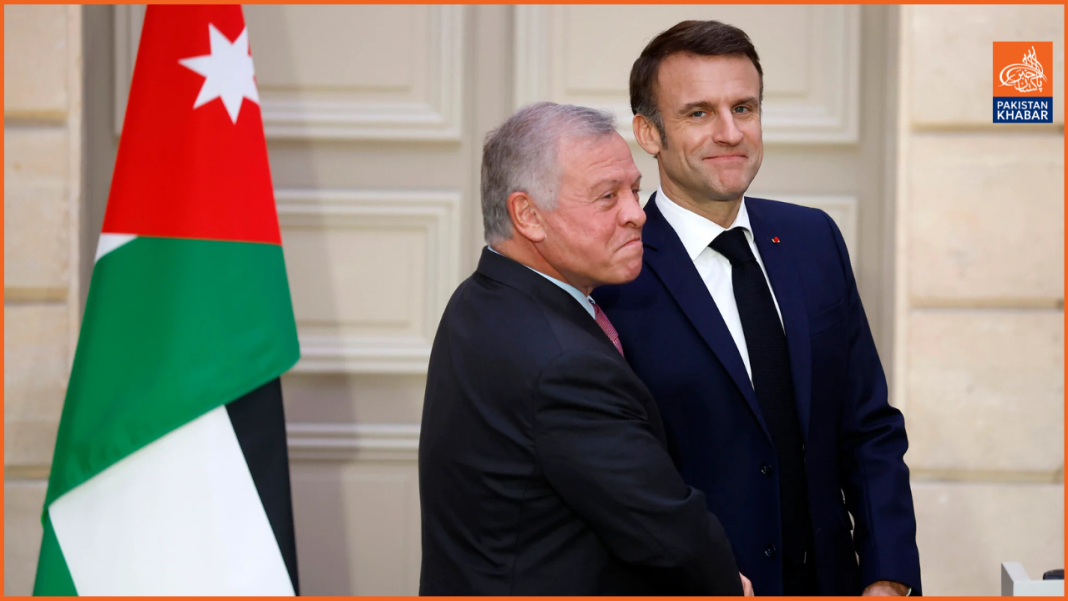In a world scared by conflict and numbed by inaction, France appears to be preparing a bold diplomatic statement—one that could send ripples across continents. President Emmanuel Macron, whose foreign policy is often marked by nuance and calculation, has said that France is “totally ready” to recognize Palestine as a sovereign state. But there’s a catch—it will happen “at a useful moment.”
That phrase—equal parts promise and prudence—signals France’s delicate balancing act: between principle and pragmatism, justice and geopolitics.
“Recognition is not a taboo,” Macron told reporters during a press briefing alongside Jordan’s King Abdullah II in February 2024. “But it must serve peace. It must be effective.” (Anadolu Agency, May 2024)
Europe’s Mood is Shifting
Macron’s words didn’t fall into a vacuum. They arrived just as the mood across Europe started to shift. Spain, Ireland, and Norway have all shown signs of moving toward formal recognition of Palestine, driven in part by frustration over Israel’s continued settlement activities and the spiraling humanitarian disaster in Gaza.
Unlike some of his European counterparts, Macron is playing the long game. France, after all, is not just another EU member. It’s a permanent member of the United Nations Security Council. Its decisions carry weight—and consequences.
“France is determined to contribute to a credible political process,” Macron noted in a separate statement reported by Le Monde, signaling support for an international peace conference scheduled for June 2025.
That planned conference, backed by France and Saudi Arabia, could serve as a diplomatic stage where France—perhaps with allies—formally recognizes Palestine in a coordinated gesture rather than a solo move.
Beyond Symbolism: What Would Recognition Mean?
The idea of recognizing Palestine isn’t new. Over 140 countries have already done so. But when a Western power like France steps forward, it’s more than symbolic—it’s a tectonic shift.
Recognition would imply that France no longer views Palestinian statehood as conditional on Israeli negotiations. It would also lend legitimacy to Palestinian diplomatic claims in international forums, especially the UN.
Yet Macron is threading a fine needle. France has historically supported Israel’s right to security and remains critical of armed groups like Hamas. At the same time, Macron has expressed deep concern over Israel’s military actions, particularly in Rafah.
“The situation in Gaza is unacceptable. France has repeatedly called for a ceasefire,” said French Foreign Minister Stéphane Séjourné in a recent statement quoted by France 24. “But recognition must be more than an emotional gesture—it must lead somewhere.”
Between Hope and Realpolitic
Some see Macron’s hesitation as weakness. Others see wisdom. Jumping ahead of a unified European position could backfire. So could an uncoordinated recognition that Israel dismisses or uses as a reason to harden its stance.
But Macron is clearly laying the groundwork for something bigger. He’s not closing the door—he’s opening it with care.
“Recognition must be useful,” he insists—not as a reward, but as a tool for peace.
In the diplomatic world, where timing is everything, “useful” may just be the keyword of the year.
A Turning Point?
There’s an undeniable sense that the sands are shifting. As more countries speak of recognition not as a dream but as an obligation, France’s voice—when it comes—could break the silence that has paralyzed the peace process for years.
The question is not if Paris will act. The question is when—and whether that act will light a path forward or further complicate an already tangled road.
Sources:
Anadolu Agency, “French President says ‘totally ready’ to recognize Palestinian state,” May 2024
Le Monde, “Not right moment for France to recognize Palestinian state,” May 2024
France 24, “France urges ceasefire, awaits diplomatic window on Palestine,” March 2024



